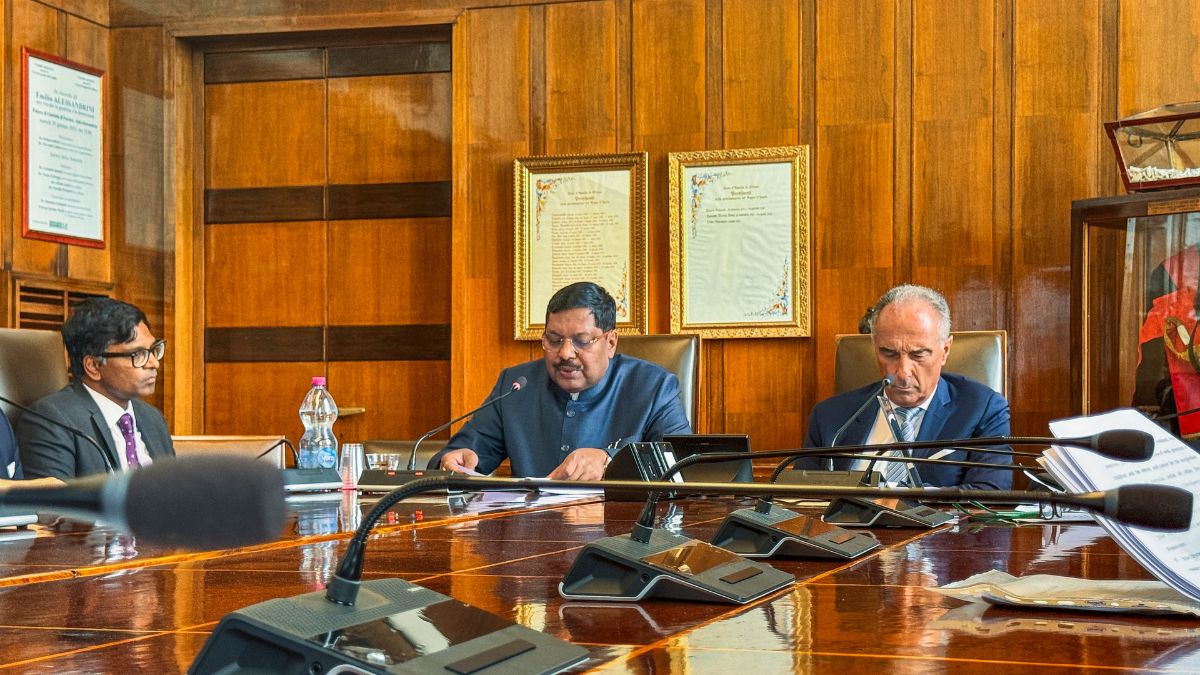No true democracy without social justice: CJI BR Gavai
 Chief Justice of India BR Gavai speaks at a function on the topic 'Role of Constitution in Delivering Socio-Economic Justice in a Country: Reflections from 75 Years of Indian Constitution', in Milan, Italy | PTI
Chief Justice of India BR Gavai speaks at a function on the topic 'Role of Constitution in Delivering Socio-Economic Justice in a Country: Reflections from 75 Years of Indian Constitution', in Milan, Italy | PTI
A nation cannot truly call itself democratic or progressive unless it actively works to dismantle the deep-rooted inequalities that hold back vast sections of its population, Chief Justice of India BR Gavai said in a powerful address in Milan on Wednesday.
Delivering a lecture on 'The Role of the Constitution in Delivering Socio-Economic Justice in a Country: Reflections from 75 Years of the Indian Constitution', the Chief Justice underlined that justice is not just a lofty idea or an abstract principle, it must be felt in people’s lives, in the opportunities they get, and in the conditions, they live in.
“Socio-economic justice,” he said, “is not just a moral aspiration. It is a practical necessity if we want our societies to be stable, cohesive and truly sustainable.”
True justice, the CJI explained, goes beyond welfare or redistribution. It’s about creating a society where every individual, no matter their background, can live with dignity, realise their full potential, and participate as equals in the country’s economic, social, and political life.
He said inclusive development must lie at the heart of any nation's progress. “It’s only when opportunity is fairly shared and dignity is guaranteed to all that freedom becomes meaningful,” he noted.
Thanking the Chamber of International Lawyers for hosting the event, CJI Gavai said India’s constitutional journey over the past 75 years has been one of great ambition and significant achievements especially in its efforts to bring socio-economic justice to the heart of governance.
“I stand here today as a product of the Constitution’s promise,” Chief Justice of India BR Gavai said with quiet conviction, addressing a gathering in Milan. Reflecting on his own journey from a historically marginalised background to the country’s highest judicial office, he credited the Indian Constitution for creating the space and opportunity for transformation.
"As Chief Justice of India, I take immense pride in acknowledging the foresight of our Constitution’s framers. They were deeply aware of the urgent need for socio-economic justice, especially in the wake of our hard-won freedom from colonial rule,” he said.
Justice Gavai highlighted how affirmative action policies particularly in education have given substance to the Constitution’s vision of equality. “These measures weren’t symbolic,” he noted. “They were the foundation for correcting historical wrongs and ensuring that Scheduled Castes, Scheduled Tribes, and socially and educationally backward classes could find a rightful place in society.”
India